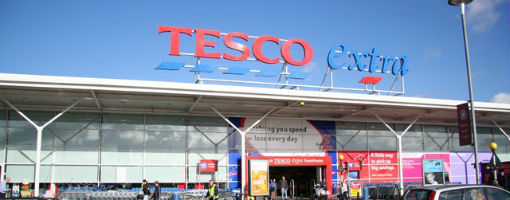Tesco’s IAS 19 defined benefit (DB) pension deficit decreased by £549m in the six months preceding August 2021, the supermarket chain’s interim results have revealed.
The report showed that the deficit fell from £1,004m in February 2021 to £455m in August 2021.
Tesco stated that the improvement in funding level was driven by a “significant” increase in pension assets due to a fall in index-linked gilt yields and strong equity markets.
This increase in assets was slightly offset by a rise in liabilities, which was driven by a fall in corporate bond discount rates and an increase in long-term inflation rates.
The firm has made £11m in deficit recovery contributions so far this year, compared to £161m in 2020.
Due to a £2.5bn one-off contribution towards the pension deficit last year, UK pension contributions were reduced.
The £11m in contributions this year were mainly related to its Booker Group scheme.
Tesco’s next DB pension triennial valuation is on 31 March 2022.
Commenting within the report, Tesco chief executive, Ken Murphy, said: “Today, we are sharing the strategic priorities that will enable us to build on these advantages to stay competitive, accelerate growth and generate between £1.4bn and £1.8bn retail free cash flow per year. These priorities will ensure we do the basics brilliantly, operate as efficiently as possible and grow our business by building unbeatable digital, convenience and loyalty platforms.
“We are committed to creating value for all stakeholders in our business. Our commitments to the communities we serve and society more broadly are reflected in our new purpose: serving customers, communities and the planet a little better every day.
"For shareholders, our strong performance to date and our confidence in our ability to generate cash in the coming years has enabled us to announce the start of a buyback programme that will balance the maintenance of a strong capital structure with returning surplus cash."
Latest News
-
Govt urged to prioritise pension policy stability in Spring Statement
-
Just Group underlying operating profit falls by 39%
-
Employers warned modest pension defaults risk worsening adequacy gap
-
Aegon updates modelling tool to help members benchmark retirement needs
-
News in brief - 27 February 2026
-
PPF levy to remain at zero for 2026/27
Private markets – a growing presence within UK DC
Laura Blows discusses the role of private market investment within DC schemes with Aviva Director of Investments, Maiyuresh Rajah
The DB pension landscape
Pensions Age speaks to BlackRock managing director and head of its DB relationship management team, Andrew Reid, about the DB pensions landscape
Podcast: From pension pot to flexible income for life

Podcast: Who matters most in pensions?

In the latest Pensions Age podcast, Francesca Fabrizi speaks to Capita Pension Solutions global practice leader & chief revenue officer, Stuart Heatley, about who matters most in pensions and how to best meet their needs
© 2019 Perspective Publishing Privacy & Cookies










Recent Stories